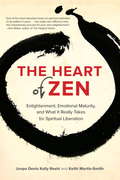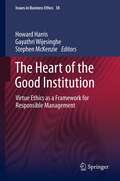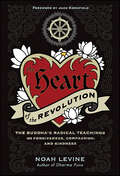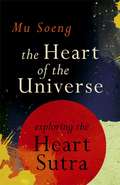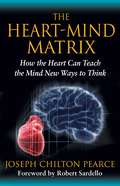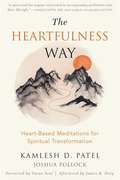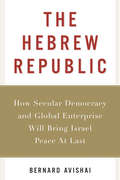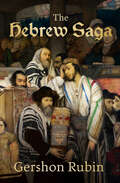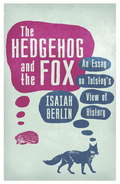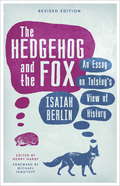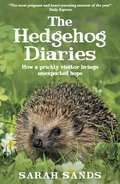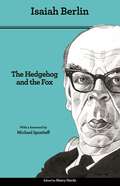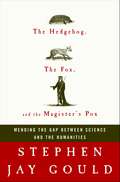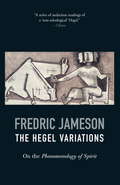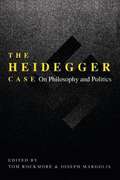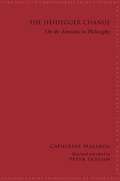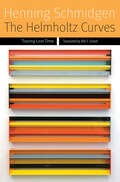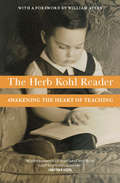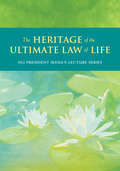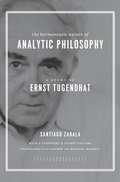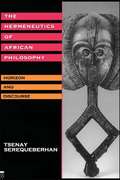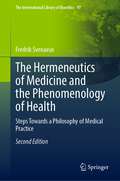- Table View
- List View
The Heart of Zen
by Keith Martin-Smith Jun Po RoshiWhile we are more and more familiar with popular ideas of enlightenment and spiritual awakening, life still comes at us full force, and hope can turn to frustration as the gulf between our spiritual belief and our everyday life seems to loom ever larger. Through spirited Q&A sessions with Zen master Jun Po Denis Kelly Roshi, The Heart of Zen takes a gradual, step-by-step approach to what has become a vexing problem in spiritual circles. What is missing is integration. If awakening truly transforms every part of the life of a person, where are we getting stuck? How can negative emotions like anger, shame, envy, and jealousy continue to arise? How do our relative egos relate to the Zen teaching of Emptiness, and what does this mean for our intimate relationships, our emotional bodies, our views of the world and its problems? The Heart of Zen represents the next generation of spiritual books because it addresses awakening and spiritual life within the context of creating lasting change through the integration of spiritual insight into the flow and flux of everyday life. Jun Po Denis Kelly Roshi explains how well trained meditation students may learn to be nonreactive to emotions, but they seldom learn how to transform their negative emotions (and the ego that holds them) as part of a more deeply integrated, lived spirituality. This book describes precisely what this means in great detail and with exercises for the reader to follow. Part discussion on these intricate topics and part experiential guide, The Heart of Zen offers a one-of-a-kind take on enlightenment, emotional maturity, and the integration required to take one's seat in true liberation.
The Heart of the Good Institution: Virtue Ethics as a Framework for Responsible Management
by Howard Harris Gayathri Wijesinghe Stephen MckenzieThis book addresses the question: how can institutions develop and maintain a good purpose? And how can managers contribute to this endeavour? Twelve contributions explore this question, using MacIntyrean inquiry as a basis for exploring four main themes: Can management be considered a practice in the MacIntyrean sense? What is the role of specific virtues in the development of a virtuous institution? What are management vices and what are the conditions in which they flourish? And, can we use MacIntyrean ideas to consider the management of all forms of institutions? The volume is an international and multidisciplinary collection, with contributions from well-known writers in the field of management ethics, and innovative contributions that use MacIntyrean inquiry as a lens to examine fields such as hospitality, user generated music content and social sustainability. The papers are unified by their concern for the achievement of organizational excellence and integrity through ethical management. Unlike single author texts this edited volume brings together multiple perspectives on the topic of virtue ethics in management. In doing so, it explores the topic both more deeply and more widely than a single author can do. Because of its breadth, this book has the potential to become a turn-to research tool for those interested in virtue theory's relevance to other academic interests such as organizational behavior (including motivation theory and social psychology), literature, contemporary social issue criticism, and business management.
The Heart of the Revolution: The Buddha's Radical Teachings on Forgiveness, Compassion, and Kindness
by Noah Levine“The Buddha’s teachings are not a philosophy or a religion; they are a call to action and invitation to revolution.”Noah Levine, author of the national bestseller Dharma Punx and Against the Stream, is the leader of the youth movement for a new American Buddhism. In Heart of the Revolution, he offers a set of reflections, tools, and teachings to help readers unlock their own sense of empathy and compassion. Lama Surya Das, author of Awakening the Buddha Within, declares Levins to be "in the fore among Young Buddhas of America, a rebel with both a good cause and the noble heart and spiritual awareness to prove it,” saying, “I highly recommend this book to those who want to join us on this joyful path of mindfulness and awakening."
The Heart of the Universe
by Mu SoengForm is emptiness; emptiness is form. This is the bold and intriguing assertion of the Heart Sutra, a text of seminal importance to the Buddhist tradition made even more fascinating by its deep resonance with the cutting edges of quantum physics and cognitive science. In spare and approachable language, The Heart of the Universe deftly explores this gem of world religious literature from a variety of perspectives--historical, spiritual, linguistic, and scientific--each serving to interdependently illuminate the other.
The Heart-Mind Matrix: How the Heart Can Teach the Mind New Ways to Think
by Joseph Chilton Pearce Robert SardelloActivating the compassionate intelligence of the heart to reconnect to the universe and our spiritual future • Shows how the heart is connected to our prefrontal cortex and offers a balancing counterweight to the calculating intellect of the lower brain • Explains how we are stuck in reactive behavior loops resulting from the loss of the nurturing culture of our ancestors • Reveals how the Heart-Mind Matrix connects us to the universe and is the engine of spiritual evolution Expanding the revolutionary theories of mind explored in the bestselling The Crack in the Cosmic Egg and The Biology of Transcendence, Joseph Chilton Pearce explains how the heart provides the balancing intelligence to the brain’s calculating intellect, an innate system of emotional-mental coherence lost generations ago through a breakdown of the nurturing culture of our ancestors. By severing ourselves from our heart intelligence, we are left with our selfish, survival-oriented reptilian brains, which create and reinforce “strange loops” between potential and actual reality, leading to our modern world’s endless cycle of self-inflicted disasters and societal crises. Pearce explains that in order to break these cycles and transcend a life focused solely on surviving the results of our own reactive patterns, we must reconnect with the compassionate intelligence of the heart. Offering a rich variety of evidence, Pearce explores neurological research, lost and enduring nurturing cultures, personal experiences, and accounts from the lives and writings of modern sages such as Jane Goodall, Maria Montessori, and Rudolf Steiner. He shows that by activating the original matrix of the Heart-Mind--the engine of our spiritual evolution and our innate connection to the universe--we can teach our brains new ways to think, amend our destructive behavior loops, and enter into a future of peace, spiritual connection, and conscious evolution.
The Heartfulness Way: Heart-Based Meditations for Spiritual Transformation
by Kamlesh D. Patel Joshua Pollock<p>Heartfulness is an ideal, a spiritual way of living by and from the heart that is inclusive of all ideologies, beliefs, and religions. In this heart-centered book, a student in conversation with his teacher, Kamlesh D. Patel--affectionately known as Daaji, the fourth and current spiritual guide of the century-old Heartfulness tradition--present a unique method of meditation with the power to facilitate an immediate, tangible spiritual experience, irrespective of a person's faith. <p>Our modern, fast-paced world can be an overwhelming place. Every day, we're bombarded with messages telling us that in order to be happy, fulfilled, and worthy, we must be better, do more, and accumulate as much material wealth as possible. Most of us move through our busy lives with our minds full of these ideas, multitasking as we strive to navigate the responsibilities and expectations we must meet just to make it through the day. But what if there is another way? What if, rather than letting the busyness of life overtake our minds, we learn to be heartful instead? <p>Based on Daaji's own combination of approaches and practices for the modern seeker--which draws from the teachings of Sahaj Marg, meaning "Natural Path"--Heartfulness is a contemporized version of the ancient Indian practice of Raja Yoga, a tradition that enables the practitioner to realize the higher Self within. While many books describe refined states of being,The Heartfulness Way goes further, providing a pragmatic course to experience those states for oneself, which, per the book's guiding principle, is "greater than knowledge." <p>Heartfulness meditation consists of four elements--relaxation, meditation, cleaning, and prayer--and illuminates the ancient, defining feature of yogic transmission (orpranahuti), the utilization of divine energy for spiritual growth and transformation. Using the method, detailed practices, tips, and practical philosophy offered in this book, you'll reach new levels of attainment and learn to live a life more deeply connected to the values of the Heartfulness way--with acceptance, humility, compassion, empathy, and love.</p>
The Hebrew Republic
by Bernard AvishaiPolitical economist Bernard Avishai has been writing and thinking about Israel since moving there to volunteer during the 1967 War. now he synthesizes his years of study and searching into a short, urgent polemic that posits that the country must become a more complete democracy if it has any chance for a peaceful future. He explores the connection between Israel's democratic crisis and the problems besetting the nation--the expansion of settlements, the alienation of Israeli Arabs, and the exploding ultraorthodox population. He also makes an intriguing case for Israel's new global enterprises to change the country's future for the better. With every year, peace in Israel seems to recede further into the distance, while Israeli arts and businesses advance. This contradiction cannot endure much longer. But in cutting through the inflammatory arguments of partisans on all sides, Avishai offers something even more enticing than pragmatic solutions--he offers hope.
The Hebrew Saga
by Gershon RubinA personal and philosophical meditation on the Hebrew Bible, its stories, and its sages.In this volume, Gershon Rubin attempts to draw the secrets of the antediluvian world into the modern day. Through the lens of a lifetime of spiritual learning, he explores the ancient saga of creation, Adam and Eve, and the generations to come after. As Rubin states by way of introduction to The Hebrew Saga, &“My first name, Gershon, is similar to the Greek word geron (old man). Thus through my &‘geronoscope,&’ I view the over-four-thousand-year-long written history of the Hebrew nation, which resulted in the origination of this my world-view, or world outlook.&”
The Hedgehog And The Fox: An Essay on Tolstoy's View of History
by Isaiah BerlinIsaiah Berlin's classic essay on Tolstoy - an exciting new edition with new criticism and a foreword.'The fox knows many things, but the hedgehog knows one big thing.' This fragment of Archilochus, which gives this book its title, describes the central thesis of Isaiah Berlin's masterly essay on Tolstoy. There have been various interpretations of Archilochus' fragment; Isaiah Berlin has simply used it, without implying anything about the true meaning of the words, to outline a fundamental distinction that exists in mankind, between those who are fascinated by the infinite variety of things (foxes) and those who relate everything to a central all-embracing system (hedgehogs). When applied to Tolstoy, the image illuminates a paradox of his philosophy of history, and shows why he was frequently misunderstood by his contemporaries and critics. Tolstoy was by nature a fox, but he believed in being a hedgehog.
The Hedgehog And The Fox: An Essay on Tolstoy's View of History
by Isaiah BerlinIsaiah Berlin's classic essay on Tolstoy - an exciting new edition with new criticism and a foreword.'The fox knows many things, but the hedgehog knows one big thing.' This fragment of Archilochus, which gives this book its title, describes the central thesis of Isaiah Berlin's masterly essay on Tolstoy. There have been various interpretations of Archilochus' fragment; Isaiah Berlin has simply used it, without implying anything about the true meaning of the words, to outline a fundamental distinction that exists in mankind, between those who are fascinated by the infinite variety of things (foxes) and those who relate everything to a central all-embracing system (hedgehogs). When applied to Tolstoy, the image illuminates a paradox of his philosophy of history, and shows why he was frequently misunderstood by his contemporaries and critics. Tolstoy was by nature a fox, but he believed in being a hedgehog.
The Hedgehog And The Fox: An Essay on Tolstoy's View of History (W&N Essentials)
by Isaiah BerlinIsaiah Berlin's classic essay on Tolstoy - an exciting new edition with new criticism and a foreword.'The fox knows many things, but the hedgehog knows one big thing.' This fragment of Archilochus, which gives this book its title, describes the central thesis of Isaiah Berlin's masterly essay on Tolstoy. There have been various interpretations of Archilochus' fragment; Isaiah Berlin has simply used it, without implying anything about the true meaning of the words, to outline a fundamental distinction that exists in mankind, between those who are fascinated by the infinite variety of things (foxes) and those who relate everything to a central all-embracing system (hedgehogs). When applied to Tolstoy, the image illuminates a paradox of his philosophy of history, and shows why he was frequently misunderstood by his contemporaries and critics. Tolstoy was by nature a fox, but he believed in being a hedgehog.
The Hedgehog And The Fox: An Essay on Tolstoy's View of History (W&N Essentials)
by Isaiah BerlinIsaiah Berlin's classic essay on Tolstoy - an exciting new edition with new criticism and a foreword.'The fox knows many things, but the hedgehog knows one big thing.' This fragment of Archilochus, which gives this book its title, describes the central thesis of Isaiah Berlin's masterly essay on Tolstoy. There have been various interpretations of Archilochus' fragment; Isaiah Berlin has simply used it, without implying anything about the true meaning of the words, to outline a fundamental distinction that exists in mankind, between those who are fascinated by the infinite variety of things (foxes) and those who relate everything to a central all-embracing system (hedgehogs). When applied to Tolstoy, the image illuminates a paradox of his philosophy of history, and shows why he was frequently misunderstood by his contemporaries and critics. Tolstoy was by nature a fox, but he believed in being a hedgehog.
The Hedgehog Diaries: ‘The most poignant and heartwarming memoir of the year’
by Sarah Sands"If you buy one book this year make sure it's this one... Enchanting."Daily Mail"This charming book weaves hedgehogs into our hearts, our lives and our national identity."John WitherowA few days after her elderly father is admitted to hospital, Sarah Sands and her grandson find a poorly hedgehog in the garden. They name her Peggy, and her fate becomes a matter of pressing concern.There is something about hedgehogs - homely and yet mysterious, prickly and defenceless, wild and tame - that makes us feel deeply sympathetic to them.Having managed to outlive roads, dogs, strimmers and pesticides, hedgehogs are now an endangered species. For Sarah Sands, our failure to protect them is a symptom of our alienation from the living world.But all is not yet lost. In this charming book, Sands explores the meaning and morals of hedgehogs, and finds, in hedgehog world, a source of deep solace and wisdom.
The Hedgehog and the Fox: An Essay on Tolstoy's View of History - Second Edition
by Isaiah Berlin"The fox knows many things, but the hedgehog knows one big thing." This ancient Greek aphorism, preserved in a fragment from the poet Archilochus, describes the central thesis of Isaiah Berlin's masterly essay on Leo Tolstoy and the philosophy of history, the subject of the epilogue to War and Peace. Although there have been many interpretations of the adage, Berlin uses it to mark a fundamental distinction between human beings who are fascinated by the infinite variety of things and those who relate everything to a central, all-embracing system. Applied to Tolstoy, the saying illuminates a paradox that helps explain his philosophy of history: Tolstoy was a fox, but believed in being a hedgehog. One of Berlin's most celebrated works, this extraordinary essay offers profound insights about Tolstoy, historical understanding, and human psychology.This new edition features a revised text that supplants all previous versions, English translations of the many passages in foreign languages, a new foreword in which Berlin biographer Michael Ignatieff explains the enduring appeal of Berlin's essay, and a new appendix that provides rich context, including excerpts from reviews and Berlin's letters, as well as a startling new interpretation of Archilochus's epigram.
The Hedgehog, the Fox, and the Magister's Pox: Mending the Gap Between Science and the Humanities
by Stephen Jay GouldIn his final book and his first full-length original title since Full House in 1996, the eminent paleontologist Stephen Jay Gould offers a surprising and nuanced study of the complex relationship between our two great ways of knowing: science and the humanities, twin realms of knowledge that have been divided against each other for far too long. To establish his two protagonists, Gould draws from a seventh century b.c. proverb attributed to the Greek soldier-poet Archilochus that said roughly, "The fox devises many strategies; the hedgehog knows one great and effective strategy." While emphatically rejecting any simplistic attempt to assign either science or the humanities to one or the other of these approaches to knowledge, Gould uses this ancient concept to demonstrate that neither strategy can work alone, but that these seeming opposites can be conjoined into a common enterprise of tremendous unity and power. In building his case, Gould shows why the common assumption of an inescapable conflict between science and the humanities (in which he includes religion) is false, mounts a spirited rebuttal to the ideas that his intellectual rival E. O. Wilson set forth in his book Consilience, and explains why the pursuit of knowledge must always operate upon the bedrock of nature's randomness.The Hedgehog, the Fox, and the Magister's Pox is a controversial discourse, rich with facts and observations gathered by one of the most erudite minds of our time.
The Hegel Variations
by Fredric JamesonIn this major new study, philosopher and cultural theorist Fredric Jameson offers an innovative reading of a book that forms part of the bedrock of modern Western thought: Hegel's Phenomenology of Spirit.Whereas other writers have interpreted the Phenomenology as a rigidly closed system, Jameson discovers it to be a more fluid, open-ended work. Hegel's mind is revealed to be a less systematic mechanism than normally thought, one whose ideas never solidify into pure abstractions. The conclusion of the Phenomenology, on the aftermath of the French Revolution, is examined as a provisional stalemate between the political and the social--a situation from which Jameson draws important lessons for our own age.From the Hardcover edition.
The Heidegger Case: On Philosophy and Politics
by Tom Joseph Rockmore Margolis[These] essays together form an extraordinary response, and radical but not self-righteous challenge, to Heidegger's unambiguous complicity with Hitler and Nazism. . . . This book will provoke intense dialogue and controversy about issues which, for too long, too many philosophers have chosen either to gloss over or ignore. --Ronald E. SantoniThe relation between Martin Heidegger's philosophical thought and his political commitment has been widely discussed in recent years, following the publication of Victor Farìas's controversial study, Heidegger and Nazism, published in this country by Temple University Press. The Heidegger Case is a collection of original essays, by both American and European philosophers, on issues raised by Heidegger's involvement with the Nazis. The contributors consider such matters as the relationship between Heidegger's philosophical theories and his public statements and activities, the ways in which his ideas on social and political life compare with those of other philosophers, and the role of philosophy with respect to politics.
The Heidegger Change: On the Fantastic in Philosophy (SUNY series in Contemporary French Thought)
by Catherine MalabouBehind Martin Heidegger's question of Being lies another one not yet sufficiently addressed in continental philosophy: change. Catherine Malabou, one of France's most inventive contemporary philosophers, explores this topic in the writings of Heidegger through the themes of metamorphosis, migration, exchange, and modification, finding and articulating a radical theory of ontico-ontological transformability. The Heidegger Change sketches the implications of this theory for a wide range of issues of central concern to the humanities—capitalism, the gift, ethics, suffering, the biological, technology, imagination, and time. Not since the writings of Jacques Derrida and Emmanuel Levinas has the work of Heidegger been the subject of such inventive interpretation and original theory in its own right.
The Hellenistic Philosophers, Volume 1: Translations of the Principal Sources, with Philosophical Commentary
by A. A. Long D. N. SedleyVolume I presents the texts in new translations by the authors, and these are accompanied by a philosophical and historical commentary designed for use by all readers, including those with no background in the classical world. With its glossary and indexes, this volume can stand alone as an independent tool of study.
The Helmholtz Curves: Tracing Lost Time (Forms of Living)
by Henning SchmidgenThis book reconstructs the emergence of the phenomenon of “lost time” by engaging with two of the most significant time experts of the nineteenth century: the German physiologist Hermann von Helmholtz and the French writer Marcel Proust.Its starting point is the archival discovery of curve images that Helmholtz produced in the context of pathbreaking experiments on the temporality of the nervous system in 1851. With a “frog drawing machine,” Helmholtz established the temporal gap between stimulus and response that has remained a core issue in debates between neuroscientists and philosophers.When naming the recorded phenomena, Helmholtz introduced the term temps perdu, or lost time. Proust had excellent contacts with the biomedical world of late-nineteenth-century Paris, and he was familiar with this term and physiological tracing technologies behind it. Drawing on the machine philosophy of Deleuze, Schmidgen highlights the resemblance between the machinic assemblages and rhizomatic networks within which Helmholtz and Proust pursued their respective projects.
The Herb Kohl Reader: Awakening the Heart of Teaching
by Herbert KohlThe best writing from a lifetime in the trenches and at the typewriter, from the renowned and much-beloved National Book Award–winning educator. In more than forty books on subjects ranging from social justice to mathematics, morality to parenthood, Herb Kohl has earned a place as one of our foremost &“educators who write.&” With Marian Wright Edelman, Mike Rose, Lisa Delpit, and Vivian Paley among his fans, Kohl is &“a singular figure in education,&” as William Ayers says in his foreword, &“it&’s clear that Herb Kohl&’s influence has resonated, echoed, and multiplied.&” Now, for the first time, readers can find collected in one place key essays and excerpts spanning the whole of Kohl&’s career, including practical as well as theoretical writings. Selections come from Kohl&’s classic 36 Children, his National Book Award–winning The View from the Oak (co-authored with his wife Judy), and all his best-known and beloved books. The Herb Kohl Reader is destined to become a major new resource for old fans and a new generation of teachers and parents. &“Kohl has created his own brand of teaching . . . [He is] a remarkable teacher who discovered in his first teaching assignment that in education he could keep playing with toys, didn&’t have to stop learning, and could use what he knew in the service of others.&” —Lisa Delpit, The New York Times &“An infinitely vulnerable and honest human being who has made it his vocation to peddle hope.&” —Jonathan Kozol
The Heritage of the Ultimate Law of Life: Commentaries on the Writings of Nichiren (SGI President Ikeda's Lecture Series)
by Daisaku IkedaWhere have we come from and where do we go? Why are human beings born? Are our lives just random events or do they have some greater purpose? What is the meaning of death? Nichiren Buddhism, based on the Lotus Sutra, is a teaching of hope that provides answers to these and other important questions for modern life. Ranked among the most important works in Mahayana Buddhism, Nichiren’s 13th-century writings were revolutionary. They sought to give people a deep sense of confidence and self-reliance in this lifetime by exploring the topics of death and eternal life. In his The Heritage of the Ultimate Law of Life, Nichiren explains the ultimate Buddhist view, which frees people from both their fear of death and their unhealthy attachment to self. Daisaku Ikeda’s simple and straightforward commentary brings alive this important writing for the modern world. Thoughtful people of all faiths will resonate with his compassionate insights on the universal teaching of happiness that is Nichiren Buddhism.
The Hermeneutic Nature of Analytic Philosophy: A Study of Ernst Tugendhat
by Santiago ZabalaContemporary philosopher—analytic as well as continental-tend to feel uneasy about Ernst Tugendhat, who, though he positions himself in the analytic field, poses questions in the Heideggerian style. Tugendhat was one of Martin Heidegger's last pupils and his least obedient, pursuing a new and controversial critical technique. Tugendhat took Heidegger's destruction of Being as presence and developed it in analytic philosophy, more specifically in semantics. Only formal semantics, according to Tugendhat, could answer the questions left open by Heidegger.Yet in doing this, Tugendhat discovered the latent "hermeneutic nature of analytic philosophy"-its post-metaphysical dimension—in which "there are no facts, but only true propositions." What Tugendhat seeks to answer is this: What is the meaning of thought following the linguistic turn? Because of the rift between analytic and continental philosophers, very few studies have been written on Tugendhat, and he has been omitted altogether from several histories of philosophy. Now that these two schools have begun to reconcile, Tugendhat has become an example of a philosopher who, in the words of Richard Rorty, "built bridges between continents and between centuries."Tugendhat is known more for his philosophical turn than for his phenomenological studies or for his position within analytic philosophy, and this creates some confusion regarding his philosophical propensities. Is Tugendhat analytic or continental? Is he a follower of Wittgenstein or Heidegger? Does he belong in the culture of analysis or in that of tradition? Santiago Zabala presents Tugendhat as an example of merged horizons, promoting a philosophical historiography that is concerned more with dialogue and less with classification. In doing so, he places us squarely within a dialogic culture of the future and proves that any such labels impoverish philosophical research.
The Hermeneutics of African Philosophy: Horizon and Discourse
by Tsenay SerequeberhanHermeneutics is a crucial but neglected perspective in African philosophy. Here, Tsenay Serequeberhan engages post-colonial African literature and the ideas of the African liberation struggle with critically-used insights from the European philosophical tradition. Continuing the work of Theophilus Okere and Okonda Okolo, this book attempts to overcome the debate between ethnophilosophy and professional philosophy, demonstrating that the promise of African philosophy lies with the critical development of the African hermeneutical perspective.
The Hermeneutics of Medicine and the Phenomenology of Health: Steps Towards a Philosophy of Medical Practice (The International Library of Bioethics #97)
by Fredrik SvenaeusThis is the first monograph to deal with medicine as a form of hermeneutics, now in a thoroughly revised and updated edition, including a whole new chapter on medical ethics. The book offers a comprehensive philosophical argument why good medical practice cannot be curtailed to scientific investigations of the body but is a form of clinical hermeneutics performed by health-care professionals in dialogue with their patients. Medical hermeneutics is rooted in a phenomenology of illness which acknowledges and proceeds from the ill party’s bodily feelings, everyday life-world circumstances and self-understanding in aiming to restore health.The author shows how the works of classical phenomenologists and hermeneuticians – Martin Heidegger, Maurice Merleau-Ponty, Hans-Georg Gadamer and Paul Ricoeur – may be employed to understand how medical diagnosis is enveloped by professional empathy and clinical judgement and developed by scientific investigations of the patient’s bodily condition. Health and illness are ultimately considered to be ways of feeling at home or not at home in the world, and such experiences are the starting point of medical hermeneutics when aiming to make best use of scientific knowledge. The book is aimed at researchers and teachers in philosophy of medicine and medical ethics, and at physicians, nurses and other health-care professionals meeting with patients in ethically complex and challenging situations. Phenomenology and hermeneutics, most often considered as methods belonging to the humanities, are shown to be of vital importance for the understanding of medical practice and ethical dilemmas of health care.
